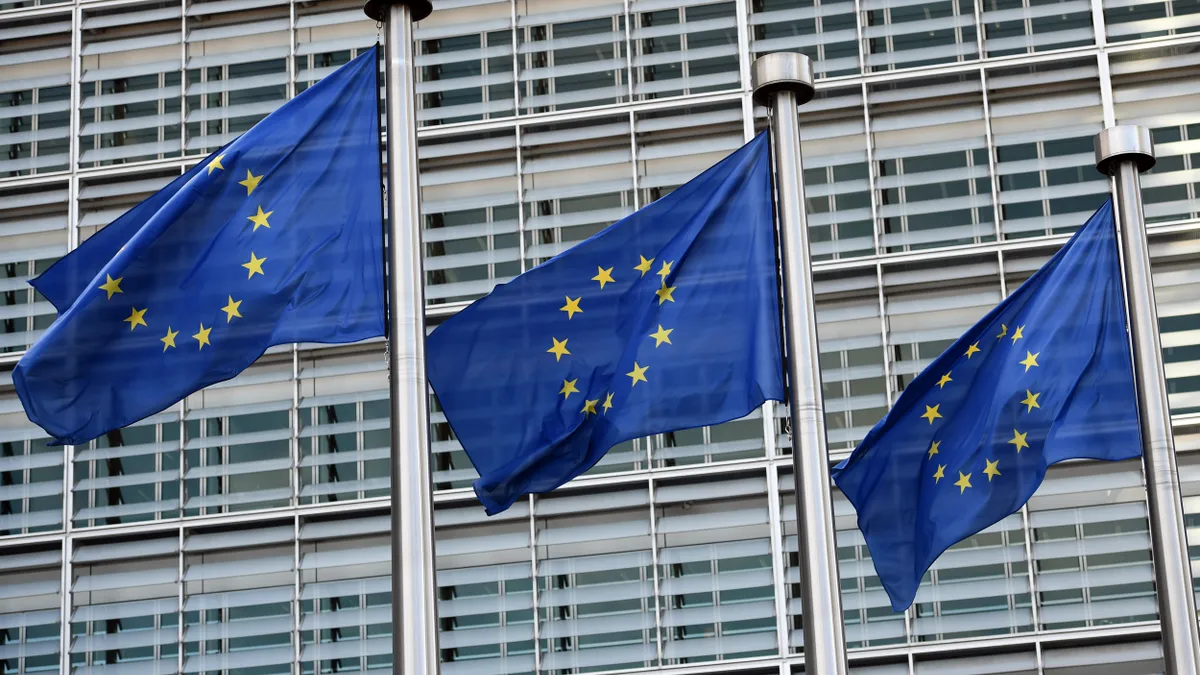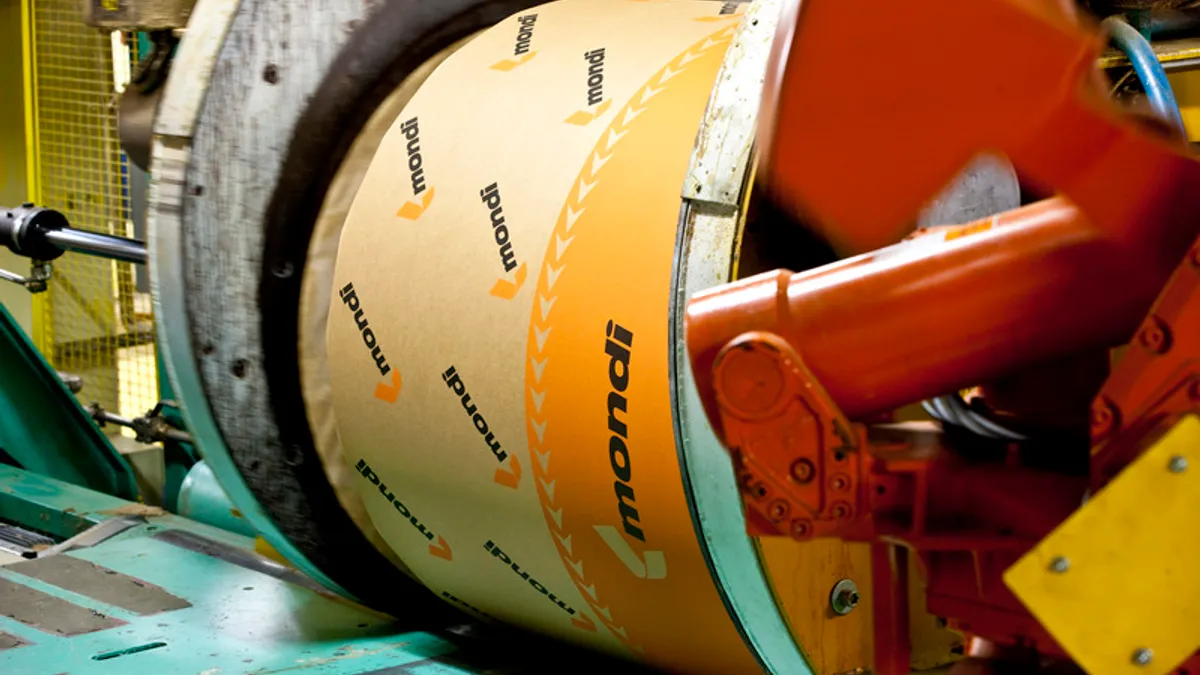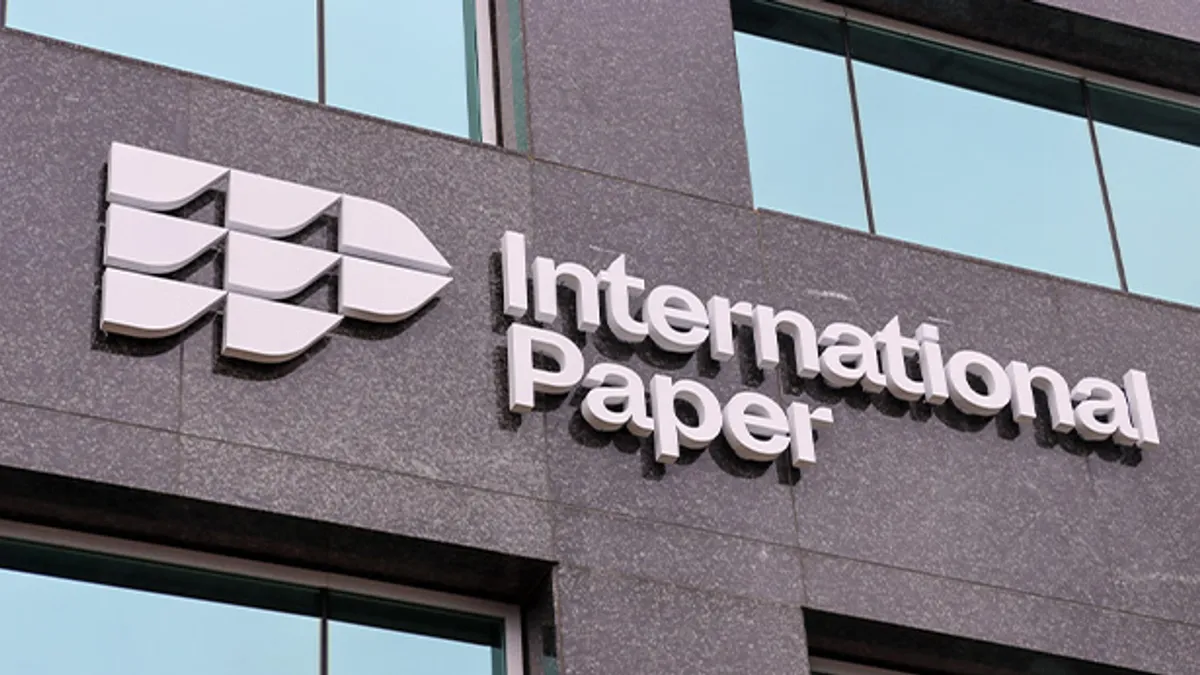International Paper has agreed to unspecified concessions for an acquisition that previously wasn’t expected to present antitrust issues.
The European Commission had set a Jan. 10 deadline for its decision on whether to approve IP’s acquisition of DS Smith. But the commission pushed that decision to Jan. 24 to determine if the measures that IP agreed to on Dec. 20 are sufficient. Specific details about the concessions will remain confidential for the time being, said Jennifer Christ, manager of consumer and commercial goods research at The Freedonia Group.
IP and DS Smith initially had anticipated the deal would close in the fourth quarter of 2024. IP announced in October that the timeline had been pushed to early 2025 due to ongoing regulatory reviews.
While such an investigation is standard for large international M&A deals, the commission typically only requires concessions if there are concerns that a transaction would reduce competition in a market. Agreed-upon remedies often involve one or both companies divesting existing facilities in areas of overlap.
Although IP and DS Smith surprised many industry observers in announcing this transaction last spring, analysts generally had predicted little, if any, regulatory pushback. Analysts noted that the two companies have few common areas in their geographic footprints. IP executives themselves noted the same on an investor call in April 2024, and they were not concerned about clearing regulatory hurdles.
That said, “[a]djustments to deals are not unusual,” Christ said via email. “I think they were unexpected in this case because there is limited overlap in geographic operations between these two companies.”
Absent any guidance from regulators yet as to their reasoning, Christ described potential scenarios that could have prompted the commission to require concessions. Perhaps they were thinking more globally, rather than regionally, in considering the two companies’ overlap, she said.
Or regulators might be looking at other recent acquisitions, such as Smurfit WestRock, and rethinking how they consider market concentration. When Smurfit Kappa and WestRock combined last year, regulators did not require any divestitures.
“In some cases, we’re seeing regulators changing how they look at potential concentration,” Christ said via email. She pointed to the recent example of Kroger and Albertson’s grocery combination getting nixed due to U.S. courts’ concerns about market concentration and competition.
Although the agreed-upon measures currently are confidential, elements included in an International Paper securities filing from September suggest some potential areas of concern with the deal.
An addendum to the document from French members of DS Smith’s European Works Council, an entity that represents the company’s European employees, says the transaction presents “undeniable opportunities” for shareholders. However, “we would like to share with you the uncertainties and our concerns for the sustainability of jobs,” it says.
It specifically points to the proximity of the two companies’ cardboard production sites and common delivery areas in France, while also flagging other areas of overlap in Europe, such as in Spain, Portugal and Italy. The group raised flags about about potential job losses and IP’s history of “rationalization.” It cites IP’s expected reduction of 400 jobs in administrative, support and general management functions, although plant closures and job losses at production sites were not expected.
Despite the concerns it raised, the group said that the transaction is “not expected to significantly change the European market in terms of market share.”
Both IP and DS Smith shareholders voted in October to approve the business combination.
The European Works Council’s concerns are in similar areas to those the European Commission flagged in prior international packaging M&A deals. For instance, the commission in 2018 approved DS Smith’s acquisition of Europac, but only upon completion of three production plant divestitures in France and Portugal. Without the divestitures, the commission was concerned that the deal would result in significantly reduced competition for corrugated sheet in Portugal and corrugated cases in Western France.
International Paper is no stranger to completing divestitures for M&A transaction approval. In 2012, the U.S. Department of Justice required its divestiture of three containerboard mills to greenlight the company’s $4.3 billion acquisition of Temple-Inland. The original proposal would have allowed one company to control 37% of North American containerboard capacity, according to DOJ, but the divestitures would preserve competition in the containerboard market.


















